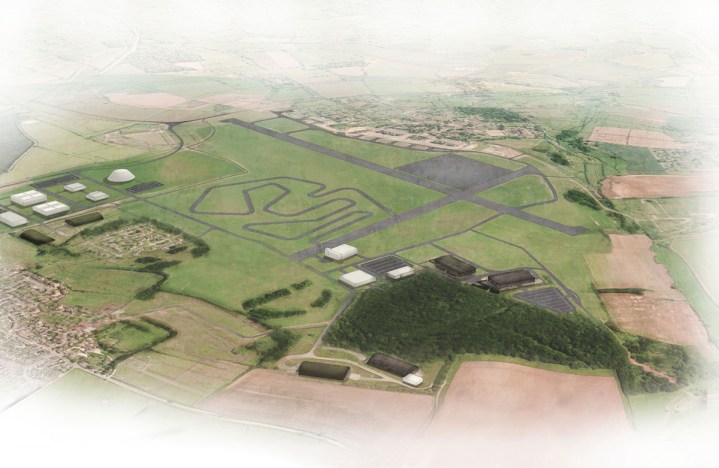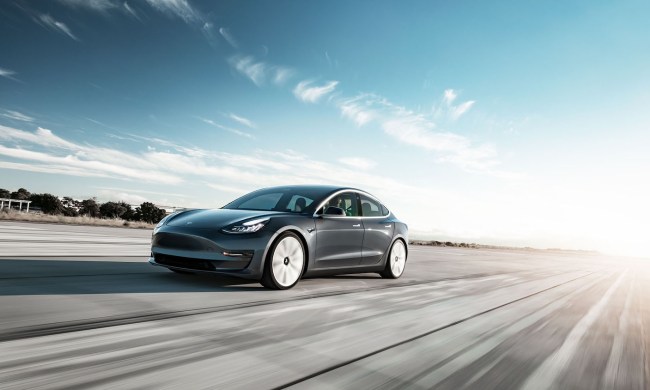
As if to remind everyone that its electric-car plans are still on track, Dyson this week revealed it’s planning to build a large test site to put the motor through its paces.
More famous for its range of fancy vacuum cleaners than electric cars, Dyson hopes to suck up the competition with its offering when it tootles out of the factory in around three years’ time.
The company revealed it was designing a “radically different” electric car in September 2017, though work on the project started two years earlier.
A major part of the electric car’s development will of course include rigorous testing. That’s why Dyson has bought a former World War II airfield about five miles from the company’s headquarters in the English county of Wiltshire.
The 400-strong team of engineers working on the car have already transferred to modernized hangars at the 500-acre airfield, with Dyson spending more than 200 million British pounds (about $260 million) on renovations. The investment will include the construction of multiple test tracks covering a distance of around 10 miles.
Dyson this week released an image showing how the site will look when it’s complete. Multiple tight bends on one of the tracks are designed to ensure thorough testing of the vehicle’s steering, brakes, and suspension, while the straights will assess speed handling and its advanced driver assistance systems. Elevations and off-road sections will also help to push the car to the limit.
Jim Rowan, chief executive of Dyson, told the BBC the new site would soon become a “world-class vehicle testing campus,” adding, “We are now firmly focused on the next stage of our automotive project strengthening our credentials as a global research and development organization.”
The company has released few details about the vehicle that it’s building, with founder Sir James Dyson saying only that it will be “radically different” to anything that’s gone before in the electric-car market.
Considering the huge challenges faced by fellow entrepreneur Elon Musk as he tries to make a success of Tesla in the fiercely competitive and fast-changing electric-car market, Dyson knows his own project requires perfect planning if it’s to have any chance of succeeding.
The British company is expecting to invest a total of 2 billion pounds (about $2.6 billion) in its electric-car program in a bid to make it work.


